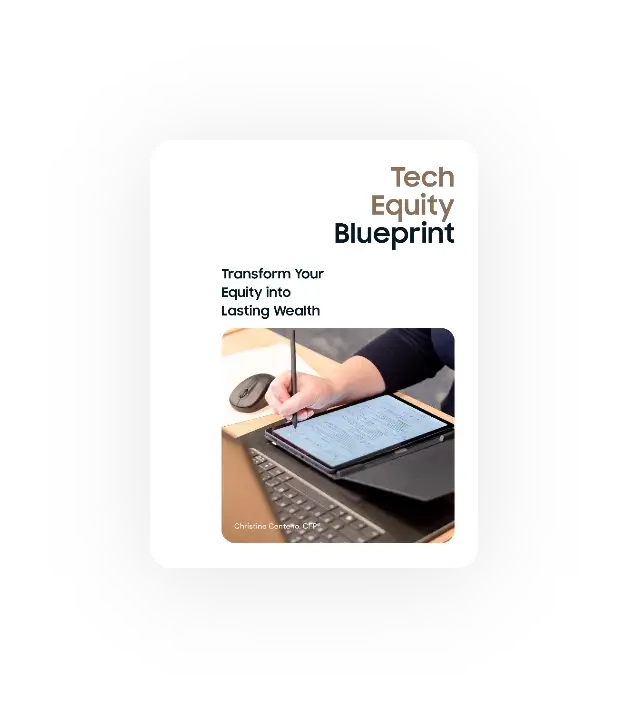BLOG / Stock Compensation
Special Deal, Limited Time Offer! Your Employee Stock Purchase Plan (ESPP).

Most employers offer benefits to their employees like health insurance, a 401(k) and group life insurance. An employee stock purchase plan (ESPP) is an additional benefit offered by your employer that allows you to purchase your company’s stock at a discount. ESPPs typically offer a discount on your company stock up to 15% and limit your overall purchase to no more than $25,000 of company stock per year.
Sounds great, right? A discount, sign me up! But how do you know if it makes sense for you to take advantage of this employer-provided benefit?
Should I invest in ESPP? Here are a few things to consider:
What other sources of savings do you have?
You’ll want to have other savings in place first before you consider enrolling in your company’s ESPP. This includes a cash reserve and retirement savings.
Are you currently participating in your employer-provided retirement plan? Make sure that you are maximizing all the benefits that your retirement plan offers. For example, if your employer offers a match, you should be contributing enough to take advantage of the match.
How much company stock do you already have?
Before considering participation in your ESPP it’s best to evaluate how much company stock you already own. For example, are you already holding company stock in your 401(k), or perhaps you’ve been granted restricted stock or options? The point here is, you don’t want to add more to your company stock position if you already have too much, to begin with! A good rule of thumb is to limit your exposure to any one company’s stock to no more than 20% of your total investments.
Company Outlook
Do you have a positive outlook for your company? Positive enough that you are willing to invest in it as a shareholder? What about the industry? Is it thriving or declining? As an employee of the company, you probably have a better idea than most of its strengths and weaknesses as well as possible projects on the horizon. Use that information to your advantage to help you make an educated choice.
Taxes
This is a very important consideration that is not to be overlooked! Yes, you can purchase the stock at a discount, but does it make sense from a tax perspective for you to take advantage of your ESPP?
Here are some key things to know:
-
The money to purchase the stock will be deducted from your paycheck after-tax.
-
When you sell the stock, the amount of the discount will be taxed as ordinary income and the remainder of the gain as a long-term capital gain.
-
Be mindful of holding period requirements in order to qualify for the tax treatment mentioned above.
-
Consider the alternatives. Would it make more sense for you to receive the tax benefit of fully maxing out your 401(k) this year instead? Or are you already maxing your 401(k)?
Timing
-
Year-end is a great time to consider enrollment for next year. Become familiar with the enrollment requirements and give some thought to what percentage of your salary to contribute.
Most importantly, make sure participating in your ESPP makes sense from the bigger picture perspective. The discount on the stock price can be very powerful, but it’s best to take a step back and make sure you’ve done your homework first.
Interested in learning more? Check out my Youtube video 3 Key Things to Know about ESPP Enrollment.
Read more about my firm, and check out my service options.
Disclaimer
The information on this site is provided “AS IS” and without warranties of any kind either express or implied. To the fullest extent permissible pursuant to applicable laws, Simplicity Wealth Management LLC (referred to as “SWM”) disclaims all warranties, express or implied, including, but not limited to, implied warranties of merchantability, non-infringement, and suitability for a particular purpose. SWM does not warrant that the information will be free from error. None of the information provided on this website is intended as investment, tax, accounting or legal advice, as an offer or solicitation of an offer to buy or sell, or as an endorsement of any company, security, fund, or other securities or non-securities offering. The information should not be relied upon for purposes of transacting securities or other investments. Your use of the information is at your sole risk. Under no circumstances shall SWM be liable for any direct, indirect, special or consequential damages that result from the use of, or the inability to use, the materials in this site, even if SWM or an SWM authorized representative has been advised of the possibility of such damages. In no event shall Simplicity Wealth Management have any liability to you for damages, losses, and causes of action for accessing this site. Information on this website should not be considered a solicitation to buy, an offer to sell, or a recommendation of any security in any jurisdiction where such offer, solicitation, or recommendation would be unlawful or unauthorized.



